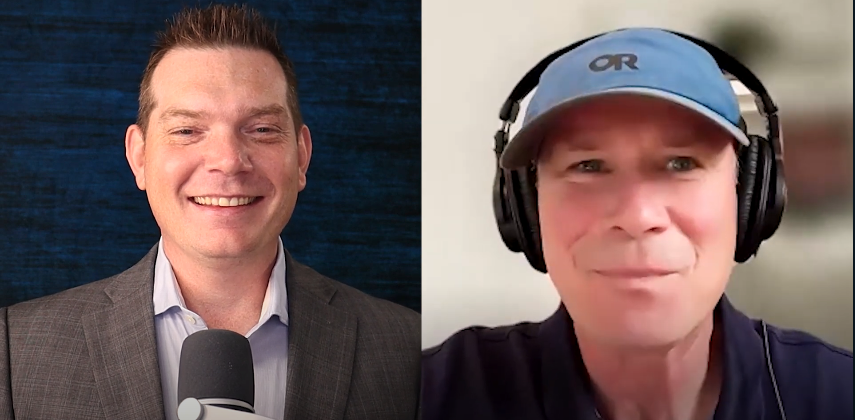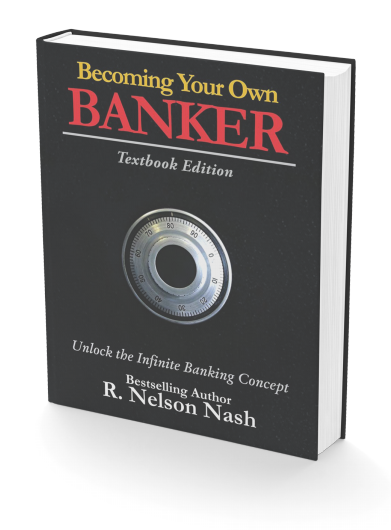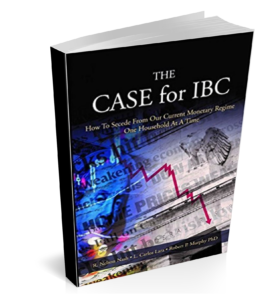For many business owners, building a successful company is just one part of the equation. True wealth-building lies in creating a solid plan to protect your legacy and maximize the value of your efforts.
Today, I sit down with Mike Malatesta—a seasoned entrepreneur who’s not only built and scaled businesses but also mastered the art of exiting them strategically.
For anyone interested in financial security, business continuity, and building generational wealth, this discussion offers invaluable insights.
The Beginning of an Entrepreneurial Journey and Strategic Business Exit Planning
Mike begins by describing how his entrepreneurial path was shaped early on. As a child, he would sit outside his parents’ home, fascinated by the trucks and equipment at the nearby construction yard. That curiosity grew into a passion for the waste management industry.
Later, during summer breaks, he worked driving trucks, eventually landing a corporate job in the industry by his mid-20s.
By 26, Mike’s trajectory seemed clear, but his world changed abruptly. On St. Patrick’s Day, 1992, he was unexpectedly fired. “It was devastating,” Mike says, “but also the push I didn’t know I needed.” Out of this setback, a new opportunity emerged, highlighting the importance of resilience and strategic business exit planning.
Encouraged by Butch Weiss, a colleague who later became his business partner, Mike decided to create something of his own. “We sat around Butch’s kitchen table, sketching out ideas,” he recalls. By January 1993, they launched their first business together, embarking on the challenges and rewards of entrepreneurship.
This is closely related to the work I do because it underscores the importance of turning setbacks into opportunities. In financial planning, as in business, clarity and strategy pave the way for transformative growth. A sound strategy can turn even the most difficult moments into stepping stones toward long-term wealth.
Navigating Challenges and Leadership Growth
Mike quickly discovered that building a business wasn’t for the faint of heart. “The life of an entrepreneur is a life of chipping away at confidence,” he explains.
Regulatory pressures, competition, and hiring issues constantly tested their resilience. Early on, Mike admits his management style created bottlenecks, a reminder of how leadership and strategic business exit planning are interconnected. “I wanted to be involved in everything,” he says. “It wasn’t sustainable.” Recognizing this, he began empowering his team, a shift that proved critical to their success.
However, no amount of preparation could shield him from the tragedy that struck in 2003. Butch, his trusted business partner and friend, died in a workplace accident. The loss was a turning point for Mike, personally and professionally.
This resonates deeply with the importance of team-building and leadership in my field. Empowering others isn’t just a business principle; it’s essential for creating financial systems that thrive independently of any one individual. The lesson here is clear: just as a business needs strong leadership, your financial strategy must be robust enough to endure life’s uncertainties.
A Tragic Loss and the Power of Preparation
Mike reflects on how Butch’s passing highlighted the importance of proactive planning and strategic business exit planning to safeguard a business. Early in their partnership, they had secured key-man life insurance. “That decision saved our company,” Mike says.
The insurance allowed them to buy Butch’s shares, ensuring financial stability for his family and keeping the business afloat.
But the emotional toll was immense. “I fell into what I call the valley of uncertainty,” Mike shares. Grieving the loss of his partner while navigating the logistical challenges of running a business left him questioning everything. It was a period of profound self-doubt but also one that led to growth.
Mike credits his team for stepping up during this difficult time. “Jeff Dean and others showed me what true leadership looks like,” he says. Their support and dedication reminded Mike that leadership is about building a team capable of thriving, even in the toughest circumstances.
This story ties directly to the value of preparation in my own work. Tools like insurance planning, contingency strategies, and clear succession plans ensure stability for families and businesses alike. Whether in business or personal finance, the ability to secure your legacy through thoughtful preparation is irreplaceable.
Rebuilding Confidence Through Coaching
To move forward, Mike sought help through Strategic Coach, a program designed for entrepreneurs. A phrase from Dan Sullivan, the program’s founder, became a guiding light: “My future is my property.”
“That simple statement shifted my mindset,” Mike explains. “It reminded me that I’m responsible for creating the future I want.” With this clarity, he rebuilt his confidence, redefined his leadership, and realigned his business goals.
Mike recounts how coaching helped him take actionable steps to move out of the valley of uncertainty. “It wasn’t just about business strategies; it was about redefining how I showed up as a leader,” he says. Over time, these lessons became the foundation for the advice he now shares with others.
This strongly aligns with my belief in continuous learning and mentorship. Just as coaching provided Mike with clarity and direction, financial guidance equips individuals and families with the tools to face challenges and secure their wealth. It’s a powerful reminder that growth often begins with a willingness to seek help.
Creating a Dream Exit
Today, Mike helps entrepreneurs prepare for their dream exits through strategic business exit planning. He emphasizes that successful exits don’t happen by chance—they require intentionality and planning. Mike outlines a simple three-step process to guide business owners:
- Assess Your Current Reality (Red Zone): “You have to know where you stand,” Mike says. Progress starts with understanding your strengths, weaknesses, and risks.
- Define Your Goals (Gold Zone): Being clear about what you want from your exit is crucial. “Whether it’s financial freedom or starting a new venture, clarity is key,” he emphasizes.
- Take Action (Green Zone): “Start bridging the gap between where you are and where you want to be,” Mike advises. Even small, consistent steps make a difference.
Mike underscores the importance of starting early. “Too many business owners delay exit planning, thinking they’ll get to it later,” he warns. “But when the opportunity comes, you have to be ready.”
This closely mirrors the financial strategies I develop with clients. Planning for retirement, major life changes, or unforeseen events demands the same intentionality and foresight. Early action creates options, flexibility, and peace of mind when it matters most.
My Reflections
Throughout our conversation, I’m struck by Mike’s ability to turn challenges into opportunities. His story serves as a powerful reminder that the most successful entrepreneurs aren’t just dreamers—they’re planners.
Listening to Mike, it’s clear that preparation isn’t just about protecting the business; it’s about protecting your vision, your team, and your legacy.
Mike’s insights resonate deeply with the work I do in helping individuals create financial strategies that align with their values and goals. His focus on clarity, preparation, and intentionality mirrors the principles I advocate for.
Key Takeaways
Here are the key lessons from Mike’s journey:
- Prepare Early: Don’t wait for a crisis to start planning your exit. Tools like key-man insurance and buy-sell agreements can safeguard your business.
- Empower Your Team: Leadership isn’t about doing everything yourself. Build a team that can operate independently.
- Be Honest About Your Business: All progress starts with understanding your strengths and weaknesses.
- Define Your Goals: Know what you want from your exit to ensure it aligns with your long-term vision.
- Invest in Personal Growth: Coaching and self-reflection can provide the clarity needed to lead effectively.
- Take Ownership of Your Future: Remember, your future is your property. Shape it intentionally.
Mike’s journey is a testament to resilience, intentionality, and the power of preparation. Whether you’re years away from selling your business or ready to start planning now, his advice offers invaluable insights.
Want to discover how to take control of your financial future? Check out “Becoming Your Own Banker“.




